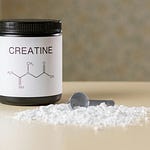It’s Q&A time! You can ask your own question here for a chance to have it answered in an upcoming edition.
Just a reminder that these answers are for educational and informational purposes only, and aren’t a substitute for medical or mental-health advice. Although I am a registered dietitian, I’m not your dietitian (unless you happen to be one of my 1:1 clients—hi!—but even then, this email isn’t a session).
The first question today is available to all subscribers (about Nutrition Response Testing), and there’s a bonus one for paid subscribers (about doctors recommending diets for myalgic encephalomyelitis / chronic fatigue syndrome and other poorly understood illnesses).
And just fyi, both the question and the answer contain the name of a problematic kind of test, as well as the name of a supplement company.
Hi Christy, I am fairly new to your work, but have been working with a nutritional therapist on recovering from disordered eating for around 4 years now. As for many of us, my journey started in diet culture then shifted to wellness culture, as I continued to try and solve my “weight issue” once and for all.
In wellness culture I discovered Nutrition Response Testing (NRT) and the supplement company Standard Process. At the time of discovering this, I was so desperate for answers and help I did not do too much research into it, and instead decided to listen to my gut and trust the people who introduced it to me.
Now that I am in a much better place and have brought two kids into this world, I want to know exactly what it is I am buying into. I have tried to do some more research, but still feel a little conflicted.
I believe NRT has helped me with a number of medical issues that I could not find acceptable answers to in the western medical world: Raynaud’s, facial flushing, pinworms, and “covid toes”/chilblains to name a few. I have been critically thinking about the placebo, nocebo and care effect along with the natural progression of disease to try and explain some of my positive outcomes, but again, this is challenging. There is, what I think is, an orthorexic component to the NRT practitioners approaches and this raises red flags for me.
Is NRT and Standard Process something you are familiar with? I would really love to hear your thoughts/opinions about this. Thank you so much for the work you do.
—Dawn
Thanks so much for this question, and I’m glad my work has been helpful to you in thinking critically about these issues. I can definitely empathize with feeling desperate for answers and just going along with something because you trust the people who recommended it. I’ve done that many, many times in my search to heal/manage my chronic conditions.
Sadly, that combination of desperation and trust can lead us to fall prey to some dubious wellness claims—and unfortunately I think that might be the case here.
I was only vaguely aware of Nutrition Response Testing before your question, but when I looked into it I realized why: it’s actually just another name for an unproven and unreliable diagnostic test called applied kinesiology, also known as Health Kinesiology or muscle testing.
This spurious test can take a few different forms. Most commonly, the first step is that a practitioner gives a patient a vial of a food or other substance to hold, or sometimes holds it near the patient. In other versions, the practitioner may just instruct the patient to think about a particular thing (or person). In Nutrition Response Testing, the practitioner puts their hand on an area of the patient’s body.
Next, the practitioner pushes down on the patient’s arm, supposedly testing the strength of the muscle. Perceived weakness is taken as a sign that the patient has a sensitivity to the food/substance in question—or in the case of NRT, it’s seen as evidence that the patient has a problem with the part of their body the practitioner’s hand is touching.
Of course, what exactly constitutes “weakness” is very subjective. The practitioner’s own biases about which foods are “bad” (or which organs are “damaged”) can easily lead them to believe a patient’s arm is a little floppier in the presence of, say, gluten. And patients themselves can feel weaker when they’re told the vial contains a substance they believe is bad, or when a practitioner is pushing on a part of their body that feels vulnerable.
Despite some practitioners’ scientific-sounding assertions, there’s no good evidence behind this kind of testing. Applied kinesiology has been disproven in numerous studies over the years, going back to the 1980s when the method was found to be “no more useful than random guessing.” A double-blind, placebo-controlled studypublished in an integrative-medicine journal came to the same conclusion.
Even the chiropractor who developed NRT seems to acknowledge at some level that this method is bogus. “Nutrition Response Testing…is for screening purposes and should not be relied upon by itself as a final test of the presence or absence of any disease or conclusive evidence about nutritional deficiency or sensitivity,” says a disclaimer on his website. “The Nutrition Response Testing system, wellness products and statements about dietary supplements have not been evaluated by the Food and Drug Administration.”
In other words: Nutrition Response Testing shouldn’t actually be used to diagnose anything.
As for Standard Process, it looks to me like a pretty typical supplement company, with all the issues that go along with that. Its products aren’t tested by the FDA for safety or efficacy before going to market, because no supplements are. They don’t even appear on the USP Verified list, which is a voluntary, third-party verification program that ensures products meet some minimum safety standards.
(The USP seal doesn’t mean that the supplements in question are effective, or even that they’re necessarily safe in your particular case—they may still have interactions with medications you’re taking, for example. But if you must take supplements, getting USP Verified ones is also a must, in my view.)
I’d also be curious about the financial relationship between the supplement company and the NRT practitioners you saw. In episode 18 (which is available now for paid subscribers and comes out for free on Monday), registered dietitian Jonah Soolman talks about his experience working at an alternative-medicine clinic and discusses the major financial entanglements between practitioners in that space and supplement companies.
Where does that leave you? I know you said you feel like NRT has helped you with some of your conditions, but I’d invite you to consider that other factors are likely responsible for the improvements. The placebo, nocebo, and care effects and the natural progression of disease could definitely explain a lot of it, as you said. The mind-body connection is incredibly powerful, especially in conditions where the symptoms involve pain and inflammation.
Simple random chance might also play a role. For example, if you were prescribed a bunch of vitamins and minerals based on a dubious test, it’s possible that you might have been deficient in one of them and not known it. That doesn’t mean the NRT test was accurate—it was just a random guess, but those can be right some of the time, simply by coincidence.
Coincidence could also be involved in your experience with the pinworms. These parasites are very common among kids and caregivers (especially those who change diapers), and they tend to respond well to standard anti-parasitic treatments. If you get pinworms on a recurring basis, it may be because you’re encountering them in your environment and getting reinfected, not necessarily because the treatment didn’t work. Conversely, if you didn’t get them for a while, consider whether anything else in your environment might have changed in a similar timeframe.
Finally, you say that you notice an orthorexic component to the NRT practitioners’ approaches. I think you’re absolutely right—bogus tests like this one are often used to make restrictive-diet recommendations that are equally suspect. It’s great that this raises red flags for you, and I’d encourage you to keep listening to that skeptical inner voice.
Thanks to Dawn for the great question, and to all the free subscribers for reading! Paid subscribers can stick around for the bonus Q&A, and everyone can ask their own questions for a chance to have them answered in an upcoming newsletter.
Fyi, the question below involves unpacking specific diet advice that was recommended by a doctor.
First, thank you for your work. I’m on disability so can’t become a paid subscriber or I would, but I loved your first book and, as someone who’s had juvenile rheumatoid arthritis for 45 years, I am so grateful for your second book. I was recently diagnosed with myalgic encephalomyelitis [ME, aka chronic fatigue syndrome or CFS], although I’m sure I’ve had it for at least 30 years. I’m seen at one of the few clinics in the country that actually specializes in this condition, which Long COVID bears similarities to.
While my doctor doesn’t push this given that I’ve explained I’m still in recovery from anorexia, they give as their boilerplate advice that people with ME should avoid sugar and follow a Mediterranean diet. (ME is still nowhere near being fully understood, but many experts agree that it involves brain inflammation; I won’t go into the subtler explanations.)
I would love to eat a Mediterranean diet, because those foods are what I most enjoy, but gut issues like IBS and gastroparesis that I’ve had due to childhood surgery and my lack of energy for any real cooking mean I eat a lot of processed food and sugary things. I have a terrific Health At Every Size dietitian who likes your work and who is all about my eating whatever appeals to me as long as I’m not deluding myself into enjoying diet food, for example.
My question is not just for me but for anyone with a little-understood illness for which there are currently no great treatments: if your doctor is pushing diet restrictions or changes, with the implication that if you don’t follow that advice, you’re never going to improve, how best to handle that? Thank you!
—Alyson











